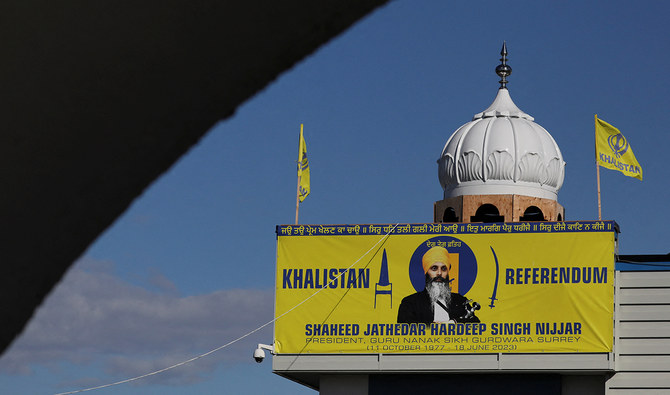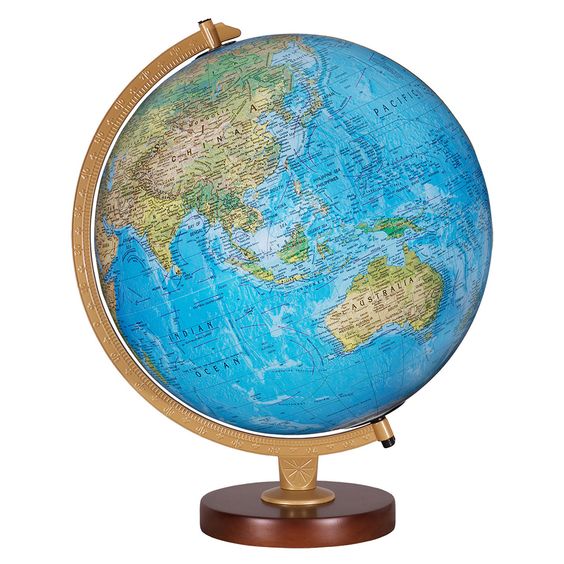
The claim that Indian intelligence agents were responsible for the murder of Sikh nationalist is an allegation and the Indian govt. has dismissed it as absurd
By Tom Arms
India is likely to escape the consequences of allegedly murdering a Sikh Canadian on Canadian soil.
And this in turn will have consequences for democracy and political structures in India, the sub-continent’s relations with the rest of the world, Canadian relations with its allies and the international rule of law.
Let’s start with the fact that the claim that Indian intelligence agents were responsible for the murder of Sikh nationalist Hardeep Singh Nijjar is—so far—an allegation. And that the government of Narendra Modi has dismissed it as “absurd.”
But, at the same time, it is inconceivable that Prime Minister Justin Trudeau would have stood on the floor of the Canadian parliament and announced that he had “credible evidence” that India was behind the murder given the dire repercussions of such a claim.
India is fast becoming one of the most important countries in the world. It has overtaken China as the most populous. Its economy is growing at 7.8 percent and is set to overtake Japan as the world’s third largest.
 It has become a go-to destination for Western companies seeking to “de-risk” their investments in China. And as a member of the Quad Alliance it is a key counter-balance to Chinese influence in the world.
It has become a go-to destination for Western companies seeking to “de-risk” their investments in China. And as a member of the Quad Alliance it is a key counter-balance to Chinese influence in the world.
All this means that the US and its allies – including Canada—have been actively courting the Delhi government of Modi and this courtship has turning a blind—or at least blinkered—eye to its excesses.
India is more of a loose confederation than centralized federal system. It has 12 official languages and an estimated 2,000 tribal groupings. Its 76 years of independence have been marked by a constant struggle to maintain a unitary state develop a common national identity.
Modi is determined to forge that identity based on the dominance of Hinduism, which is practiced by 80 percent of the population. To that end he is prepared to suppress press freedom, the courts and even use violence to achieve his objective. The establishment of a unified Hindu nation—not democracy—is now the defining goal of the Indian government.
The Sikh Diaspora’s struggle for an independent Sikh nation known as Khalistan is seen by the Indian government as a threat to its objective.
India’s well-established foreign policy is an additional problem. It is studiously not pro-Western. It is, however, anti-Chinese because of a long-standing border dispute. But it also has historic good relations with Moscow which it is struggling to maintain while improving relations with the West.
But most important of all India sees itself as non-aligned and the leader and spokesperson for the developing world. And in common with the developing world—and China and Russia—India resents the post-war legal and political structures which it says were written by America and Europe for the benefit of America and Europe.
One of those laws is that countries cannot murder the citizens of other countries on the other country’s territory. Russia suffered the consequences of breaking that law when in 2018 it attempted Russian to poison former Russian spy Sergei Skripal and his daughter Yulia. A remnant of lethal novichok when onto kill Brit Dawn Sturgess.
The result was the expulsion of Russian diplomats and sanctions by Britain and all of its allies. British Prime Minister Theresa May had no more evidence of Russian involvement than Trudeau when he accused the Modi government.
The murder of Hardeep Singh Nijjar has sparked off a round of tit for tat diplomatic expulsions between India and Canada; the shelving of a major Indo-Canadian trade deal and ominous travel advisories from both countries. But the reaction from Canada’s allies has ranged from muted to a deafening silence.
Britain has simply said it is in close touch with its Canadian allies. Australia is “deeply concerned”. Washington is also “deeply concerned” and has urged Delhi to cooperate with Canadian investigations. But so far none of Canada’s allies in NATO or the Five Eyes Group have talked about sanctions or diplomatic expulsions.
It seems likely that economic and security considerations trumps the rule of law.
Also read: How the murder of a Sikh leader sparked an international incident between Canada and India
 World Review
World Review
Ukraine has approximately 30 days before the autumn/winter rains bring their counter-offensive to a muddy halt.
To date they appear to have broken through the first line of a three-line Russian defense in an area around Bakhmut and Zaporizhzhia. There is an outside possibility they can achieve a major breach, but that is highly unlikely.
There is more depressing news for Ukrainian troops. For a start the bromance between Vladimir Putin and North Korea’s Kim Jong-un will keep the Russian troops supplied with artillery shells to help keep the advancing Ukrainians at bay.
Then there are problems with Poland. Up until this week the Poles have been a driving force behind EU and NATO support for Ukraine. But Prime Minister Mateusz Morawiecki—with one eye on the farming vote and next month’s general election—has stopped military supplies to Ukraine because Ukrainian grain is driving down Polish wheat prices.
Poland has the support of Slovakia and Hungary and wants EU-wide restrictions on the import of Ukrainian grain. The Ukrainians, of course, are exporting their grain to EU countries because the Russian blockade makes it impossible for them to ship it to their usual customers in the Middle East and Africa.
The next problem is signs that US support is waning. This week Volodomyr Zelensky turned up in Washington to assure American lawmakers that Ukraine is slowly but surely winning. President Biden responded with a $325 million military aid package. Zelensky also has the support of the leadership in both the Senate and House of Representatives. But a group of far-right Republican Trump supporters are threatening to block a financial package which includes an extra $24 billion in aid to Ukraine.
And then, finally, there is the fact that Trump has pledged to stop military aid to Ukraine if he is elected in 2024.
It has taken seven years, but it looks as if the investigation of France’s right-wing leader Marine Le Pen may end up in court.
She and 23 members of Her Rassemblement National—including her father Jean-Marine Le Pen—are accused of misuse of EU funds. They allegedly used a total of about $620,000 of money which was meant to be spent EU administration to fund party activities.
The accusation comes from the Paris Prosecutor’s office and still has to be confirmed by the prosecuting judges. But it seems highly likely that that is a formality.
If she is found guilty, Marine Le Pen faces the possibility of a $1 million fine, 10 years in jail, and a 10-year ban on holding public office. Her conviction would have a major impact on the French and European political landscape.
According to the Paris Prosecutor, Ms Le Pen spent $45,000 of EU funds to pay her personal bodyguard. On another occasion she is alleged to have diverted EU funds to pay for a meeting to discuss party activities and hung an EU flag outside the meeting room. When the meeting started she told party members “take that s**t down.”
It looks like more American presidential impeachments. Republican Speaker of the House Kevin McCarthy this week ordered the House of Representatives to set up a committee to start formal investigations into whether or not to impeach President Joe Biden.
This is despite what most observers reckon is a total lack of any credible evidence linking the president to any wrongdoing regarding his son Hunter Biden. And Speaker McCarthy’s previous insistence that he would not start formal committee hearings without a full vote of the House.
McCarthy’s change of direction is for three reasons. First is that the Republicans need to establish a whataboutery context to counter the mounting number of court cases facing Donald Trump.
The second is that Speaker McCarthy believed that a vote of the full house would have stopped impeachment moves. This is because several moderate Republicans signalled that they would vote against impeachment hearings because of the lack of hard evidence.
The third is that McCarthy is frightened of losing his job. To secure election in the first place he was forced to agree to a far-right sponsored change of the rules that allow any one member of the House to force a vote that could remove him from office.
Several members of the right-wing Freedom Caucus told McCarthy they would initiate such a vote unless he started committee hearings without the previously promised vote.
Their insistence could well backfire. To date Biden’s White House has cooperated with every subpoena request (unlike Trump’s administration) and is likely to continue to do so. And this week the hearings started with a televised grilling of Attorney General Merrick Garland during which Republicans looked like badgering bullies.
America has a new Asian buddy— Vietnam. The burgeoning partnership between the two countries is testament to wisdom of British statesman Lord Palmerston who said “We have no eternal allies and we have no perpetual enemies. Our interests are eternal and perpetual and those interests it is our duty to follow.”
At the moment the mutual interests of Vietnam and America are helping to erase the memory of a long, bloody and messy jungle war that left both countries scarred.
The communists won the war against America. They are in power in a unified Vietnam. The country is a one-party heavily centralized socialist state, albeit with some free market conditions to attract foreign investment.
Now the two countries could be on the verge of an alliance. Ten years ago the Obama Administration started the ball rolling. Joe Biden’s recent visit to the country raised the relationship two rungs on the diplomatic ladder to a “comprehensive strategic partnership.”
Biden claimed at the end of his visit that its purpose was not to “contain China” but to “seek stability in the Indo-Pacific region.” It followed at the end of a period of whirlwind diplomacy in which the US increased security ties with the Philippines, South Korea, Japan and India as well as Vietnam. So, unsurprisingly, the Chinese do see Biden’s Asian diplomacy as Cold War containment.
The Vietnamese are also keen to contain Beijing’s influence. China is Vietnam’s biggest trading partner, but the two have a long fractious history. Vietnam disputes China’s claims to the South China Sea and has a number of border disputes. In 1979, when Vietnam was recovering from its 30 years of war with the French and Americans, the Chinese invaded and the two armies fought on and off until 1990 when Beijing finally withdrew.
The enmity between China and Vietnam reaches 2,500 years back into history. For most of its history, Vietnam has been an on-off vassal state of China. It ceased to be one when the French took over as the colonial power in 1884. In fact, the Sino-Vietnamese relationship may be the exception that proves Lord Palmerston’s diplomatic rule.
________________
 Tom Arms is foreign editor of Liberal Democrat Voice. He is currently working on an update of his “Encyclopaedia of the Cold War” and present a weekly world affairs podcast called “TransAtlantic Riff” which can be heard by clicking here https://open.spotify.com/show/3ntjretAKNLZNFpA5ZEGDG
Tom Arms is foreign editor of Liberal Democrat Voice. He is currently working on an update of his “Encyclopaedia of the Cold War” and present a weekly world affairs podcast called “TransAtlantic Riff” which can be heard by clicking here https://open.spotify.com/show/3ntjretAKNLZNFpA5ZEGDG